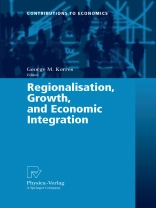Europe suffers from an inadequate capacity to transform scientific and technolo- cal knowledge into business opportunities […] A strong collective effort will be needed in the area of innovation […] To make any real impact on the unemployment problem and the future of forthcoming generations, macroeconomic policies must be backed up by an equally far-sighted range of microeconomic measures […] This range of measures must above all include an extra special effort in the area of training of all types of human resources, of stepping up investment in – search and development and the development of an information society […]. (Romano Prodi, Former President European Commission) There is considerable empirical evidence that investment in Research and Technological Development and Innovation (RTD&I) has a positive cor- lation with the level of economic development. Efforts in the area of RTD&I have been associated in the economic literature with higher growth rates, increases in exports and trade, gains in productivity, growth in income and output, bigger business profits and lower inflation, inter- tional competitiveness, etc. Innovation must apply to all aspects of the activity of a firm (markets, products, processes and services). In this sense, the concept of innovation embraces research and development, technology and training as well as marketing, design and quality, finance, logistics and not least the business management required to mesh these various functions together efficiently.
विषयसूची
Macroeconomic Issues of Regional Growth and Economic Integration.- Economic Integration and Labour Markets: Ways Forward.- An Assessment of the Integration of Eastern European Economies in the European Union.- Looking at the Monetary Integration: Modeling Interest Rate Transmission Dynamics in Greece. Is There any Structural Break After EMU?.- How Harmful is International Tax Competition?.- Microeconomic Issues of Regional Growth and Economic Integration.- Foreign Direct Investment (FDI) and Exchange Rate Uncertainty in Imperfectly Competitive Industries.- Foreign Direct Investment: Explaining the Regional Location Determinants in South-Eastern European Countries.- Starting with the Local – a Knowledge-Based Approach to Economic Integration.- Policies and Institutions of Regional Integration.- Education, Research and Regional Economic Disparities in the European Union After 2004 Enlargement: Econometric Models and Policy Challenges.- European Regional Convergence: Some Evidence for the Role of Information Communication Technologies.- Regional Disparities and the Effects of Innovation Activities on Regional Integration.- Challenges and Prospects for an Integrated Europe.- Research and Technological Development Policy and Innovative Performance: The Greek Case Within the EU.- Financial Autonomy of Local Governments: Case Studies of Finland and Poland.- From Closed to Open Regionalism in Central America: a Preliminary Assessment of the Proposed Belize-Guatemala Free Trade Agreement.- Aspects of Regional Social Governance. Welfare Reform in the US Implications for a Global Policy Against Exclusion.












